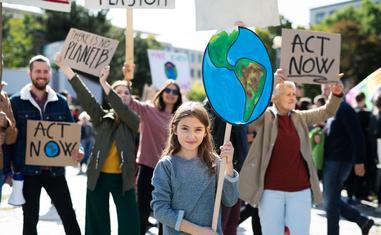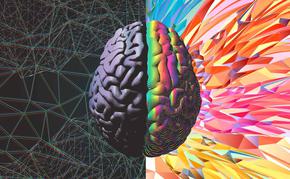The views expressed in our content reflect individual perspectives and do not represent the official views of the Baha'i Faith.
If systemic racism has been one the most difficult crises to overcome and has done some of the most lasting generational damage over centuries, climate change is arguably the crisis that represents the greatest existential threat to planetary survival.
The near-term consequences of climate change add up to a ’planetary emergency.’ Implications are catastrophic, wide-ranging and intersecting. Worse still, the complexity of the climate system means that some impacts are still unknown.
RELATED: How Global Governance Can Address Climate Change
While you might expect a statement like this from Greenpeace or any similar activist environmental group, it is in fact a warning from leaders of some of the largest businesses on the planet. They and a network of NGOs, academics and others who make up the World Economic Forum had input to the organization’s annual Global Risks Report. For the first time in 15 years of publication, the 2020 version of this report names the failure to mitigate and adapt to climate change as the biggest stand-out long-term risk facing the world.
The report states that, “… when the challenges before us demand immediate collective action, fractures within the global community appear to only be widening.” Reading this brings to mind an excerpt from a 2017 statement from the Universal House of Justice, the elected international administrative council of the Baha’is of the world:
The welfare of any segment of humanity is inextricably bound up with the welfare of the whole. Humanity’s collective life suffers when any one group thinks of its own well-being in isolation from that of its neighbours’ or pursues economic gain without regard for how the natural environment, which provides sustenance for all, is affected.
The Global Risks Report referred to above expresses it this way:
“In the long term, the mobilization of youth could lead to a new green social contract reordering political and business life, as today’s striking children gradually become tomorrow’s voters, workers, investors and consumers. Politicians will seek to attract them through policies such as the Green New Deal legislation that has been proposed in the United States. As today’s youth demand jobs that are compatible with their concern about climate change, workforce climate activism may become more common, and companies without strong environmental credentials could struggle for talent. Lastly, as consumers, the new generation of climate crusaders will make more sustainable lifestyle choices, such as eating plant-based diets or flying less, and demand more lowcarbon goods.”
RELATED: Climate Strike: the Word of the Year
Humanity 2.0
Close to 400 years ago, the idea to re-organize warring territories into sovereign nations served as the catalyst for the Peace of Westphalia. Now, the concept of human oneness is poised to be the catalyst for reorganizing sovereign nations into a new global system, one imbued with the capacity to effectively manage our transnational reality.
Every global crisis we are now experiencing, or are about to experience, can be linked to our not having reached a critical mass of people who accept the inescapable reality that we are one human family.
Failure to accept oneness as a core organizing principle will inevitably lead to more and more global crises until we finally get the message. The only variable in this equation is how long we choose to suffer before making the transition. Although reimagined within the Baha’i community, the oneness precept stands on its own outside the framework of any specific religion as a timeless spiritual standard. This 1985 quote from “The Promise of World Peace”, written by the Baha’i Universal House of Justice, suggests a way forward:
Acceptance of the oneness of mankind is the first fundamental prerequisite for reorganization and administration of the world as one country, the home of humankind. Universal acceptance of this spiritual principle is essential to any successful attempt to establish world peace. It should therefore be universally proclaimed, taught in schools, and constantly asserted in every nation as preparation for the organic change in the structure of society which it implies.
Hugh Locke is president and co-founder of the Smallholder Farmers Alliance, and president and founder of the Impact Farming Foundation. He is the author of The Haiti Experiment, and writes and lectures extensively on smallholder agriculture and sustainable development.

















Comments
Sign in or create an account
Continue with Facebookor